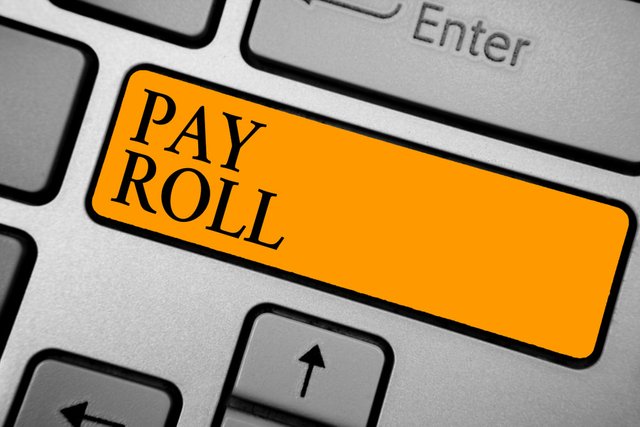Blockchain just the job for recruitment and employment
Relying on the old school tie to secure you a top job will probably not do you too much good these days – unless, perhaps you are in the UK Cabinet. Outside that, blockchain is set to revolutionise recruitment.
Recruitment is a highly sophisticated sector – and it needs to be as people are far more mobile job-wise than they once were. The days of a professional staying with one company their entire career is a rarity now.
Finding and then hiring the best people from within a talent pool is often time-consuming and expensive. Blockchain technology can and will make life easier for HR professionals – and in several ways.
According to a recent report from PwC, HR functions should consider the benefits blockchain delivers, such as reliable verification of a candidate’s identity without the involvement of a third-party. It can also help pinpoint areas of inefficiency in existing operations that could be addressed through blockchain.
The nature of recruitment involves a significant amount of labour-intensive data collection and verificationand blockchain could play a key role in simplifying and speeding up the process.
Educational claims

Bogus or exaggerated educational claims have been a long-standing problem for employers
One obvious question is whether adoption of blockchain technology could mean the end of fraudulent education claims that reached their peak during the height of outsourcing?
There may not be a 100% guarantee that blockchain will eradicate all bogus educational or work experience claims, but it should make a massive difference. Providing an employer with a comprehensive, dependable record of school and college qualifications, skills, training and workplace performance via blockchain represents genuine progress.
For the HR team, being assured that a new recruit has the skills they claim and by applying analytics to data, employers would be able to match individuals to roles much more accurately.
Schools, universities, exam boards

For blockchain in recruitment to work efficiently, universities and employers need to buy into the concept fully
As Peter Rogers, CEO at blockchain consultancy Welford explains, recruitment is a significant investment of resources and of money. And if you get it wrong it can lead to a protracted, painful and expensive experience for both the company and the employee.
Data residing on a blockchain is absolute; it cannot be tampered with or deleted. For recruiters, this means that candidate information on qualifications and experience, once verified and on the blockchain for hiring, can be taken as bona-fide.
But as Rogers explains success of blockchain in recruitment depends on a critical mass of data verifiers including schools, colleges, employers, certification authorities buying into the concept.
Each member of the network can be notified when any candidate data is posted to the blockchain in order for them to verify that data. So, if that data upload says a candidate has a PHD from Edinburgh University, the student database at Edinburgh University can be searched for a match with the data verified and accepted on to the blockchain or rejected if not verified.
Incentives
Crucially there is an incentive for all parties to embrace blockchain. As Rogers explains it’s in everyone’s interest that accurate candidate information is posted to the blockchain.
For employers, they will want an accurate record of employment history to be made available when requested; for universities and colleges they will not want anyone claiming qualifications they don’t have. Candidates too will be increasingly focused on posting accurate information given that it will be stored forever.
There is also a financial incentive too. Companies launching blockchain based recruitment apps are typically building crypto tokens into their solutions. So tokens can be earned by candidates for providing employers access to CV information.
Alternatively, tokens could be paid to data verifiers, including colleges and employers, for verifying candidate information – or showing it to be bogus – whatever the case may be.
Tokens may also be traded on secondary exchanges and even converted to fiat currency. Essentially a monetary system could be developed within the network to drive the interest of participants.
And as Rogers points out, it is not in anyone’s interest to cheat because they will either suffer financial loss or be found out and excluded from the system.
Employment track record

It is not always possible to fully check work experience claims on a CV
Verifying education is one thing, accurately documenting employment history is another thing altogether.
Checking whether a candidate has a degree or is chartered is relatively straight forward, but it is not as easy to clearly gauge ‘experience’. An independent consultant or contract worker will not have the same work record as a direct employee who has been through an appraisal system.
Job titles can be misleading – even within the same industry, for instance an Assistant Vice President in one company could in reality be a relatively junior role – while in another it might carry a large degree of responsibility.
Missing or unverifiable data
Employment tracking could also struggle to validate historical data – for instance what if a company has gone out of business or been acquired by a rival? Is sufficient (or indeed any information) available?
For HR departments it is arguably more practical to build blockchains for employment data from this point onwards rather than backtrack and attempt to build a complete past record.
But there is more to blockchain than just validating educational or work experience. Blockchain is a way of identifying role suitability and therefore maximising potential and helping career progression. Essentially it is a win/win for employer and employee. Cost savings are also a notable benefit.
Time and cost savings

Blockchain could a massive benefit to pay roll operationsIn business, time is money – and the more is wasted of both the worse the effect on the bottom line. Payroll is often seen as part of the HR department. With data-heavy processes involved here, automation and security provided by blockchain could make a big difference.
Not only is data accessed and updated quicker but the number of people required in administration could be trimmed – essentially improved productivity helps save money.
With many businesses having international offices or with a great deal of business carried out overseas, blockchain also plays an important role in managing cross-border payments. It could also help when dealing with international expenses and tax liabilities. As PwC suggests, there is the potential for organisations to create their own corporate currencies.
Time to make the move?
Does blockchain threaten recruitment firms that don’t adapt? It is probably stretching things to say that the very survival of a business depends on the adoption of blockchain technology. But as with anything that provides competitive advantage and reduced costs, those that are slow to incorporate these new practices may lose ground and initiative to those that do.
It is important to remember that blockchain also has global benefits. Not only can it verify skill levels and help match talent to specific roles in a domestic market; it can do the same for talented candidates anywhere in the world.
This could prove a game changer, for example in countries where falsifying paper records has been a widespread and longstanding problem. The CV cheats will be caught out.
Story by Dave Burrows
Follow OpenLedger!